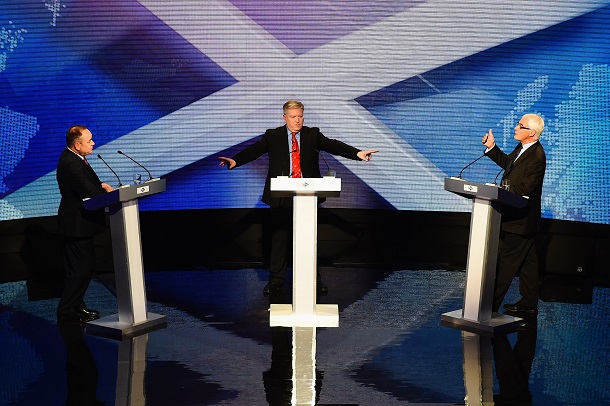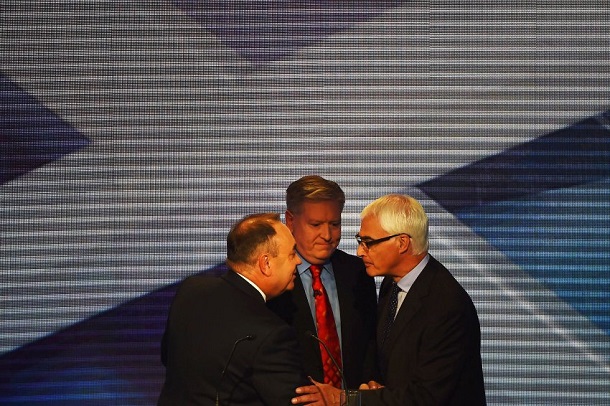Applause, booing, a hortatory Moderator: The first televised debate before the referendum on Scottish independence shows how hardened the fronts are. A survey sees the Scottish Prime Minister Salmond as losers in the debate.
In the first TV debate a good six weeks before the referendum on Scottish independence is Scottish First Minister Alex Salmond and former British finance minister Alistair Darling delivered a passionate slugfest. “No one can lead Scotland better than the people who live and work in the country,” Salmond campaigned on Tuesday evening for a Yes to independence from Britain in the referendum on 18 September. Darling, Scot himself, warned his countrymen forcefully: “If we decide to go to us, there is no turning back, no second chance.”
The debate was accompanied by permanent boos and applause of the audience, the moderator had to remind the audience again and again to rest. In particular, the stock ofindependence supporters had promised a turning point of the TV debate. But it manifestlyfailed to articulate Scottish Prime Minister Salmond, Darling, the leader of theindependence opponent to miss the decisive blow.
A survey of the “Guardian” revealed that a majority of viewers Salmond saw the loser of the debate. Accordingly found 47 per cent of viewers that Darling hit better in the TV debate. Contrast, 37 percent saw the Scottish Executive Chef forward.
Known as eloquent Salmond advertises that renounces Scotland after 307 years by the United Kingdom. Darling is committed to remain in the UK. The opinion polls onindependence referendum currently go far apart. On Tuesday, a survey by the Ipsos Morrishad become known that sees only 40 percent for independence and 54 percent opposed.Other polls had recently forecast a tighter output. Many voters were also still undecided, they said recently.

Salmond said Scotland can stand on its own feet economically and politically, and wouldnot be governed from London longer. The Labour politician Darling, who leads theindependence opponents on behalf of the central government in London, drew attention in particular to the risks of a Scottish Solo Ganges. He conjured up the danger that would result from a withdrawal from the pound for Scotland. The price would be too high, he warned. The fronts were hardened.
The three largest parties in the British Parliament had Edinburgh come to meet brieflybefore the debate even with a joint statement in which they also if they remained in theUnion more self-determination assurances regarding the Scots, especially in tax collection. The declaration also signed the conservative British Prime Minister DavidCameron, who had the desire Salmond refused to participate in a televised debate.
[adrotate banner=”67″]

